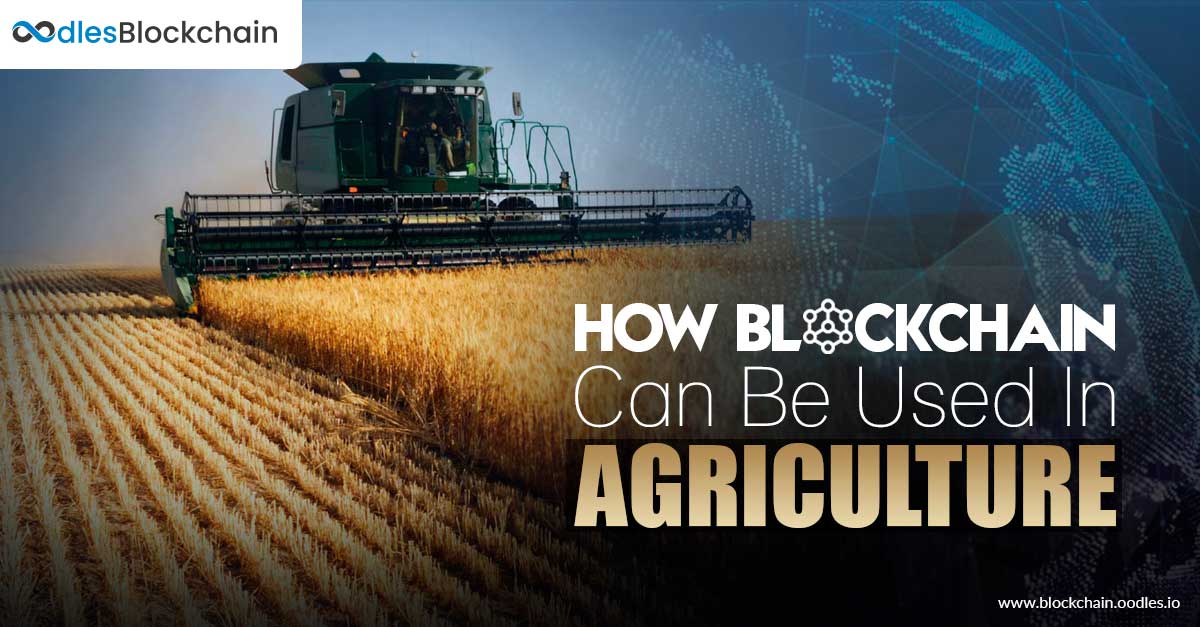-
Blockchain technology's potential encompasses a range of applications, use-cases, and solutions across various industries. What came into existence as a technology powering cryptocurrencies has now become a hot topic for mainstream business and industries. Retail and Finance are amongst the first few applications of Blockchain. The latter was first used in Bitcoin for facilitating transactions and then as the new cryptocurrencies emerged, Blockchain became the lifeline of the domain. In our previous articles, we have talked about the use of Blockchain in Finance, Healthcare, Insurance and Education. This article focuses on how we can use Blockchain technology in Food and Agriculture industry to make it better.
It seems hard to imagine that Blockchain technology could be suitable for the Food and Agriculture industry. But as it turns out, our existing food industry provides vast opportunities for the implementation of blockchain. Several startups are already working in this field.
Simplified Deliveries Using Smart Contracts
The use of Smart Contracts can greatly streamline the delivery and procurement of food products between farmers and food suppliers. For example, a Wine Company can purchase grapes directly from a farmer using smart contracts. So we see that by using Smart Contracts, we eliminate a long chain of intermediaries which helps in reducing the final price of the product in the market.
Food Protection and Safety
The food frauds have become very common these days and they cost billions of dollars to the global food and agriculture industry. At the same time, consumers have now become more aware and alert about the food they are consuming. The incidents of food poisoning and other food-related diseases have increased by more than 200% in the last two decades, making consumers more suspicious about the food they are eating. Thankfully, Blockchain can provide a robust solution for controlling food quality that would eventually help to reduce such incidents. Blockchain technology will consolidate various food chains by providing secure means for accounting, tracing, and monitoring food quality.
Land Title Registrations
Another significant role of Blockchain-based Smart Contracts can be seen in Land Title Registrations. Land Registration is quite a cumbersome process for the farmers that causes conflicts every year. Besides, it is more prone to fraud and can be easily manipulated. In this field too, Blockchain can make a difference. We can do that by making a digital, tamper-proof list of all the registered land titles by storing them on Blockchain. By doing that, the data will be publically available, thereby providing complete transparency which in turn, would reduce any instances of fraud.
Food Supply Chain
Blockchain and its applications like cryptocurrencies and smart contract solutions can significantly simplify and optimize the food supply chain. Also, they can establish security and traceability across processes and other aspects of farm-produced crop production. Like every other supply chain, the food supply chain comprises a large network of farmers, brokers, distributors, regulators, retailers, and consumers. Collectively, it produces a lot of data, managed by a central system. The data remains prone to cyber-attacks and adds to the complexities due to being centralized and providing a single source-of-failure. Blockchain can remodel the supply chain by providing a distributed peer-to-peer system of transactional and operational information exchange. It will not only make data secure but also publicly visible. It will eliminate single-point-of-failure and establish decentralization to provide a high level of transparency and security.
Oodles Blockchain is a blockchain development company comprising a team of blockchain technology architects and developers. We have the capabilities of building blockchain-based solutions for the agriculture industries, especially the food supply chain. Connect to discover more about blockchain in agriculture.

Our Offices
INDIA
Emaar Digital Greens, Sector 61,
Gurugram, Haryana
122011.
Welldone Tech Park,
Sector 48, Sohna road,
Gurugram, Haryana
122018.














